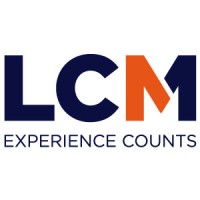
Rocco has been the underwriting director of Harbour Underwriting Limited since its incorporation and is also its managing director. He is a solicitor who has spent over two decades developing and providing insurance for a wide variety of legal disputes brought around the world. Apart from being a seasoned underwriter, he has also been a director in the investment team of Harbour Litigation Funding and so has vast experience of complex litigation risks.
Rocco is one of the leading figures in the dispute resolution community. Since 2003, he has served on numerous forums and Working Parties of the Civil Justice Council, a statutory body responsible for overseeing and modernising the civil justice system. He has also been the Chair of The Association of British Insurers’ Legal Expenses Committee.
Rocco is named in Band 1 as a Leading Individual in the Litigation Insurance Underwriters UK section ofChambers and Partners Litigation Support guide 2024 and also included in Lawdragon’s 2024 list of the 100 Global Leaders in Litigation Finance.
He is the general editor ofThe Law Society’s Litigation Funding Handbook and the author of several of its chapters, including that on dispute insurance. He is also the co-author of the chapter on legal expenses insurance in the practitioners’ textbookFriston on Costs.
Cases insured by Rocco include:
- various class actions (including securities claims) brought around the world, including in the UK, Australia and Canada
- professional negligence claims, including against lawyers, auditors and surveyors, such as in Levicom International Holdings BV v Linklaters (a firm) [2010] EWCA Civ 494
- intellectual property claims, such as Bentley 1962 Limited & Brandlogic Limited v Bentley Motors Limited [2019] EWHC 2925
- group actions, including environmental claims such as Barr v Biffa Waste Services Ltd [2012] EWCA Civ 312.
Rocco has been instructed over the years as an expert on dispute insurance, including by The Law Society in its intervention in a landmark case heard before the Supreme Court in Coventry v Lawrence [2015] UKSC50.
Company Name and Description: Harbour Underwriting Ltd
Company Website: https://harbourunderwriting.com
Year Founded: 2016
Headquarters: 4th Floor, 8 Waterloo Place, London England, SW1Y 4BE
Area of Focus: Commercial dispute insurance
Member Quote: "Litigation funders are sophisticated users of commercial dispute insurance. Even though they may well be confident of the prospects of the case they are funding succeeding, they know only too well how disputes can unexpectedly and inexplicably ‘take a turn’ for the worst and so they value having commercial dispute insurance in place from the outset.”






